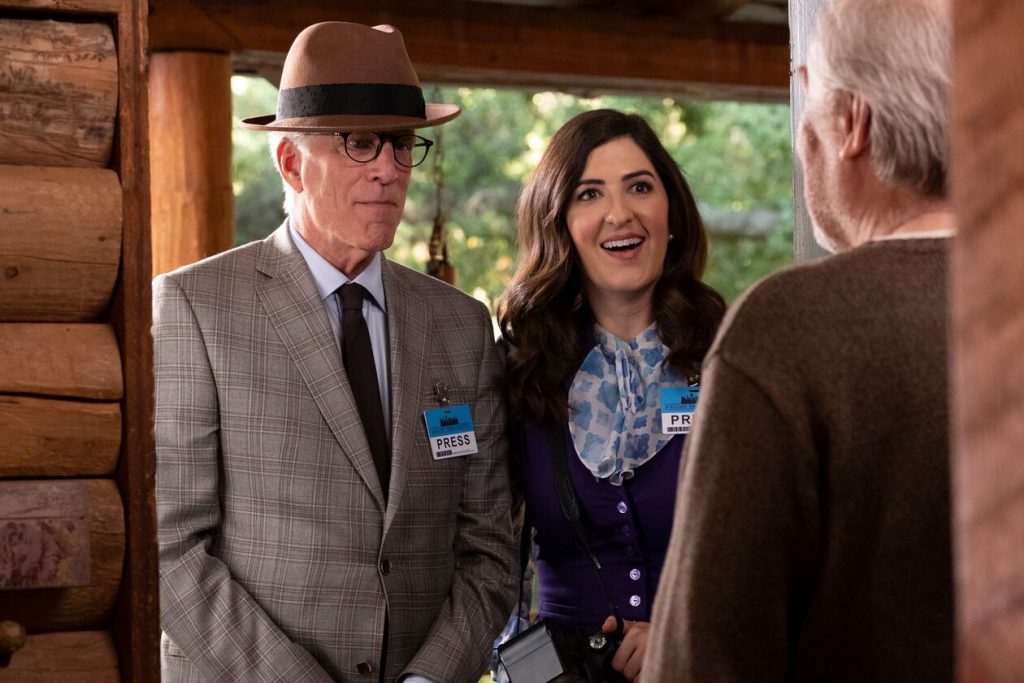The pandemic has provided many of us with an opportunity to dig up a favorite TV show and binge watch it again in our COVID-induced solitude. For my kids, it was “Gilmore Girls” or “Psych.” For me it was “The Good Place.”
“The Good Place” is a witty secular take on the afterlife. I can’t think of another network comedy show that has as a refrain, “That’s why nobody likes moral philosophers.” It is in some ways an extended comic reflection on sin and humanity’s stumbling efforts to improve itself.
While what it defines as sin might not satisfy many moral theologians, to its credit it mocks the kind of woo-woo secular wokeism where one might be sent to “the bad place” for drinking almond milk in heedless disregard for its impact on the environment.
You’ll have to watch all four seasons to see how all this turns out, since I know one of the great sins of the modern era is the unexpected spoiler.
Suffice to say that how the show wrestles with all this confirms that sin is a tough nut for us moderns to crack. On the one hand, we see evidence of it all around us. Selfishness, disregard for others, anger, greed, envy. Abortion, yes, and human trafficking, but how about gossip and racism, disregard of the poor, disregard of the elderly, all manner of exploitation, or just the spiritual sloth of not wanting to be bothered by anybody else’s problems?
A bit of honest reflection suggests when it comes to sin, our inclination is to give ourselves a big pass. We can’t imagine ourselves as really bad people. Heaven may still be believable as a place where we and our pets will be reunited, but hell is out of the question. And if we did do something a teeny bit bad, we know just enough about psychology or genetics to be convinced it’s really not our fault.
In our more generous moments, we give just about everybody else passes too except, maybe, for people we really, really dislike. Like people who voted against our candidate in the 2020 election. They are evil.
Even for Catholics, who ostensibly believe in all this sin stuff, few of us avail ourselves of the sacrament of penance regularly. And those of us who do go, I’m told by confessors, aren’t very exhaustive or wide-ranging in our self-evaluations. “I wish someone would look at the other commandments besides the sixth,” one confessor plaintively asked.
What we are much better about than finding the beam in our eye is identifying the splinter in someone else’s. Here our vision is 20/20. Whether it’s a family member, a co-worker, or a public figure, we zero in on the faults of those we disagree with or dislike, while too often ignoring the pride or anger or jealousy spurring our words.
When Pope Francis gave his first interview to Civilta Cattolica in 2013 after he was elected, the most striking passage for me was when the interviewer asked, “Who is Jorge Bergolio?” Pope Francis replied, “I am a sinner.” Immersed as we all are in the celebrity hagiography of popes, it was striking to hear this pope’s simple, blunt assertion: I am a sinner.
“If we say we have no sin,” said St. John, “we deceive ourselves, and the truth is not in us.” If we say we have no sin, we become like that Pharisee who smugly compares himself to that tax collector in the rear of the synagogue. Pope Francis says the tragedy of that Pharisee is that his pride did not allow him to seek God’s mercy.
That is what we risk when we refuse to see ourselves for who we are. For what need do we have of redemption if there is nothing to redeem us from? If we are all basically good people, then who really needs Jesus?
On the other hand, the saints tell us that seeing ourselves honestly for who we are, identifying our tendency to sin and identifying our desire to excuse our sinfulness, shatters our pride and turns us in humility toward the Lord. It is at this moment of spiritual nakedness that we begin to understand the great gift of God’s mercy.
Spoiler alert: In “The Good Place,” heaven isn’t all it’s cracked up to be, not in season one and not in season four. But the show is a reminder of one truth: that the road to goodness — we might say holiness — means falling and then picking yourself up again and again. Holiness is not perfection. I think holiness may simply be the refusal to give up the struggle, the impossible struggle, “to be perfect as our heavenly father is perfect.”
And, of course, avoiding the almond milk.

